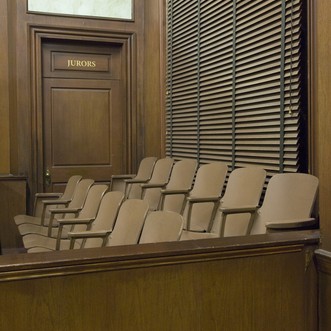SCOTUS rules for black man who claimed prosecutors eliminated blacks from jury on basis of race

The U.S. Supreme Court has ruled 7-1 on a behalf of a black man on death row who claimed Georgia prosecutors violated the Constitution by using their peremptory challenges to keep blacks off the jury.
Chief Justice John G. Roberts Jr. wrote the majority opinion (PDF) finding prosecutors discriminated during jury selection for Timothy Foster, convicted in the 1986 strangulation and sexual assault of a 79-year-old widowed white woman. Justice Clarence Thomas dissented.
Prosecutors used peremptory challenges to strike all four blacks who remained as potential jurors during the last stage of jury selection. Someone had highlighted the names of all four on the jury list in the prosecutor’s file and used the letter “B” next to each one’s name. All the blacks were also on a list in the prosecutor file that was labeled “definite no’s.”
Foster had claimed the removal of two of those jurors was racially motivated, and the Supreme Court agreed. “Two peremptory strikes on the basis of race are two more than the Constitution allows,” Roberts wrote.
Prosecutors later cited race-neutral reasons for their decisions to eliminate the two potential black jurors from the panel, but Roberts’ viewed those explanations with skepticism. He cited a variety of evidence suggesting purposeful discrimination by prosecutors, including their “shifting explanations, the misrepresentations of the record, and the persistent focus on race in the prosecution’s file.”
Roberts didn’t believe the explanation a prosecutor gave for striking one of the two potential jurors. The prosecutor said he considered both the black potential juror and a white potential juror to be “questionable,” but he opted for the white person partly because she was recommended as a juror by a third party. Yet the black juror was on the “definite no’s” list. “Contrary to the prosecution’s submissions, the state’s resolve to strike [the juror] was never in doubt,” Roberts wrote.
Roberts didn’t believe the state’s explanation that the prosecutor had misspoken. “This was not some off-the-cuff remark; it was an intricate story expounded by the prosecution in writing, laid out over three single-spaced pages in a brief filed with the trial court,” he said.
Roberts also questioned the “laundry list of reasons” prosecutors gave for striking the potential juror. They were: She had a job working with disadvantaged youth; she kept looking at the ground; she gave short answers; she appeared nervous; she was too young; she misrepresented her familiarity with the location of the crime; she failed to disclose her cousin was arrested on a drug charge; she was divorced; she had two children and two jobs; the defense asked her few questions; and she did not ask to be excused from jury service.
Many other jurors accepted by prosecutors had the same attributes as that juror and the second juror whose elimination was at issue, Roberts said.
The state had contended the emphasis on race in the prosecutor’s file represented a thoughtful effort to consider black prospective jurors and to defend against any suggestion that prosecutors were offering pretextual reasons for their decision to strike black jurors from the panel. The argument was made for the first time in the U.S. Supreme Court and it “reeks of afterthought,” Robert said.
In his dissent, Thomas said the majority “distorts the deferential Batson inquiry” and fails to consider the possibility that the court lacks jurisdiction. He was referring to Batson v. Kentucky, the Supreme Court case decided shortly before Foster’s trial, which held that eliminating jurors on the basis of race violates the equal protection clause.
Foster’s lawyer, Stephen Bright of the Southern Center for Human Rights, said in a statement that the discrimination became apparent only because the defense obtained the prosecution notes. “The decision in this case will not end discrimination in jury selection,” Bright said. “Justice Thurgood Marshall said in Batson v. Kentucky that it would end only with the elimination of peremptory strikes. The choice going forward is between the elimination or reduction of peremptory strikes or continued discrimination.”
The case is Foster v. Chatman.



